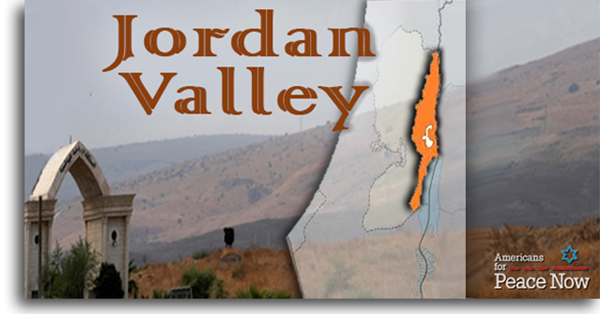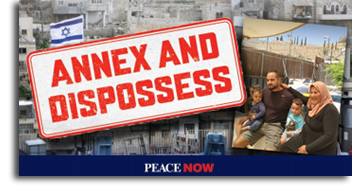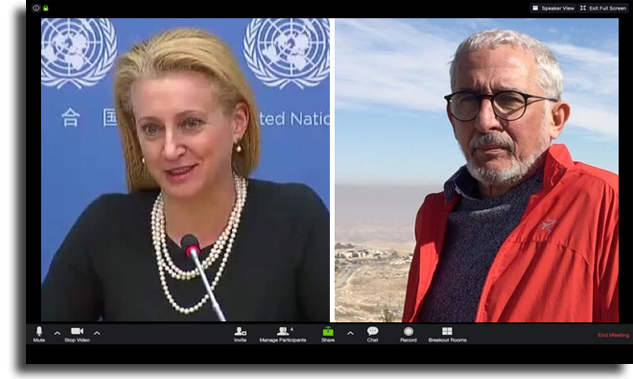According to Israel’s prime minister Benjamin Netanyahu, the bulk of his suggested West Bank annexation is
making the Jordan Valley (approximately 30% of the West Bank) an integral part of the state of Israel. Netanyahu’s
rationale for annexing the Jordan Valley is that it would bolster Israel’s security. In this paper, APN intern
Avraham Spraragen explains why annexing the Jordan Valley would hinder Israeli security rather than boost it.
INTRODUCTION
 On September 10, 2019, a week before the second of three
unprecedented Israeli Knesset elections within a year, Prime Minister of Israel Benjamin Netanyahu announced in
a televised press conference his “intention, after the establishment of a new government, to apply Israeli
sovereignty to the Jordan Valley.”[1]
On September 10, 2019, a week before the second of three
unprecedented Israeli Knesset elections within a year, Prime Minister of Israel Benjamin Netanyahu announced in
a televised press conference his “intention, after the establishment of a new government, to apply Israeli
sovereignty to the Jordan Valley.”[1]
In his address to the nation, Netanyahu presented a map that demarcated the proposed swaths of
land, constituting 1,236,278 hectares or 22.3 percent of the West Bank, to be annexed.[2] This unilateral annexation plan, a blatant violation of international law and the possible
death knell of a two-state solution, would entail an Israeli absorption of 30 settlements, including 12,778
settlers, as well as of 18 illegal outposts.
Following the third election in March, a unity deal was reached between political rivals Netanyahu and former IDF
Chief of Staff turned Alternate Prime Minister Benny Gantz for the establishment of a new government. Per Clause 29
of the unity deal, the fragile Netanyahu-Gantz government is set to “bring the agreement reached with the United
States on the application of sovereignty [in the West Bank] … for the approval of the cabinet and/or the Knesset
starting July 1, 2020.”[3] Days away from this July 1st “deadline” to begin advancing unilateral Israeli annexation of
parts of the West Bank, one of the chief annexation scenarios considered by the Israeli government awaiting a
“green light” from U.S. President Donald J. Trump, is a proposal to annex the Jordan Valley.[4]

 A new report by Peace Now’s Settlement Watch team looks at Israel's
application of the "Absentees' Property Law." This law is used to evict and/or restrict Palestinians from living
in their East Jerusalem properties in area annexed by Israel after the war in 1967.
A new report by Peace Now’s Settlement Watch team looks at Israel's
application of the "Absentees' Property Law." This law is used to evict and/or restrict Palestinians from living
in their East Jerusalem properties in area annexed by Israel after the war in 1967.
 After 16 years in the Knesset, including six years as chairperson
of Israel’s Meretz party, Zehava Galon is back to human rights activism as the President of Zulat for Equality
and Human Rights, a new Israeli activist think tank.
After 16 years in the Knesset, including six years as chairperson
of Israel’s Meretz party, Zehava Galon is back to human rights activism as the President of Zulat for Equality
and Human Rights, a new Israeli activist think tank.
 Listen to leading experts
Listen to leading experts 
 On September 10, 2019, a week before the second of three
unprecedented Israeli Knesset elections within a year, Prime Minister of Israel Benjamin Netanyahu announced in
a televised press conference his “intention, after the establishment of a new government, to apply Israeli
sovereignty to the Jordan Valley.”
On September 10, 2019, a week before the second of three
unprecedented Israeli Knesset elections within a year, Prime Minister of Israel Benjamin Netanyahu announced in
a televised press conference his “intention, after the establishment of a new government, to apply Israeli
sovereignty to the Jordan Valley.”